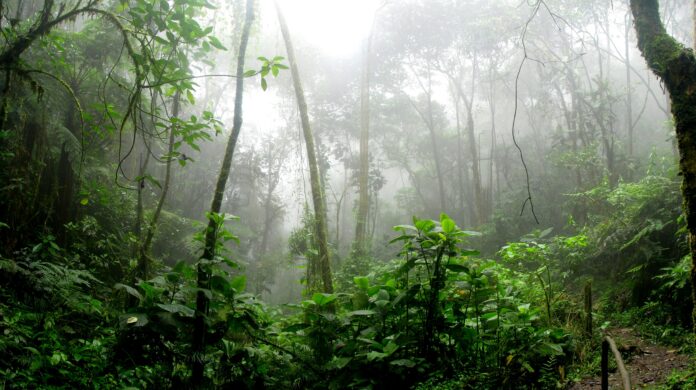More than a million species are currently on the brink of extinction, and this rapid decline in biodiversity is largely thanks to human impact. Yet in a rare example of good news when it comes to the environment, a researcher from the University of Alberta recently uncovered two species in a Philippines rainforest — including one thought to be extinct for over a century.
These findings, which also detail the discovery of an entirely new species, were published in the Poplar Open Access Journal in Forestry and Environment.
Tom Terzin, a professor of biology at the University of Alberta’s Augustana Campus, made the discovery while looking through beetle samples from the Philippines. The forests that these samples came from had been particularly impacted by human processes, with logging, agriculture, and population growth wiping out most of the forests by the end of the 20th century.
Terzin was surprised to find a short-nosed weevil — a type of beetle — that didn’t have the same type of metallic sheen that other weevils typically do. Instead, the plain black bug had scales that didn’t seem to form any pattern.
“This guy was a bit strange,” Terzin said in a press release. “[S]ome sort of rebel in refusing to mimic the species.”
Terzin named the new species Metapocyrtus (Trachycyrtus) augustanae in honour of the University of Alberta’s Augustana Campus, where he works. He explains that this new discovery is likely a rare species, as only one specimen is currently known to exist.
Alongside this new species, Terzin also found a Metapocyrtus (Orthocyrtus) bifoveatus specimen: a type of short-nosed weevil which has no reported sightings on the island over the last century. Interestingly, while these species were previously only known to live in the rainforest’s lowlands — which have been affected by deforestation — Terzin’s specimen was recovered in a much higher region of the island.
Terzin says that this “shows a struggle for life, that [this species] refused to become extinct from deforestation.”
These findings come as good news amidst an environment that is increasingly affected by human impact and climate change. Today, many species remain in danger of going extinct — but if we continue to push for action from our governments and policymakers, we can give these species a fighting chance.
As Terzin says, “Nature is amazingly resilient, if we give it a chance for recovery.”








































